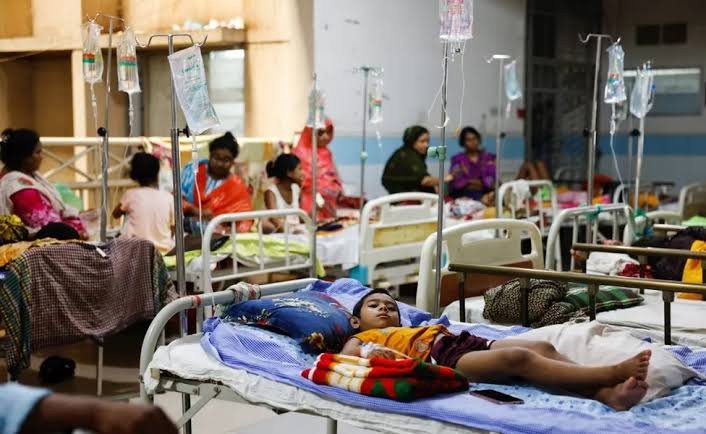Dengue outbreak claims nearly 1,000 liives in Bangladesh

In a devastating turn of events, Bangladesh is grappling with its most severe dengue outbreak to date, with nearly 1,000 lives lost in recent weeks due to the mosquito-borne disease.
The unprecedentedly wet monsoon season has created ideal breeding conditions for the dengue-carrying mosquitoes in stagnant and unsanitary water. Health authorities have been facing immense challenges in containing the rapid spread of the disease, and hospitals are teetering on the brink of critical overload.
Dengue, a viral infection, can take a deadly toll, causing internal bleeding and, ultimately, death. Its symptoms, which include severe headaches, nausea, and excruciating joint and muscle pain, have been afflicting a growing number of individuals.
Dengue, endemic to tropical regions, often rears its head in urban areas marked by poor sanitation, providing fertile ground for virus-carrying mosquitoes to thrive. Once a seasonal affliction in Bangladesh, climate change-induced hotter and wetter monsoons have led to more frequent outbreaks since the first recorded case in 2000.
Public health experts warn that this wave of infections has caught the nation off guard, fueled by a more virulent strain of the virus. Doctors have noticed a concerning trend of patients deteriorating rapidly, setting a grim record of up to 20 dengue-related deaths daily over the past two months—surpassing the total death toll for the last 22 years.
In response, Bangladesh has initiated public awareness campaigns to curtail the formation of mosquito breeding grounds. Nevertheless, Dr. Mushtaq Hussain, a prominent public health expert, insists that more decisive actions are imperative. He emphasized, “Some believe it’s a temporary ailment that will fade in a few days, leading to insufficient long-term measures.”
The World Health Organization has reported dengue infections in all 64 districts of Bangladesh. Hospitals in the capital, Dhaka, have been inundated with dengue patients seeking treatment, but most facilities are operating far beyond their capacity. A critical shortage of intravenous fluids, crucial for treating dengue-related dehydration, further compounds the crisis.
Bangladesh faces an uphill battle in confronting this deadly outbreak, with health officials and experts urgently calling for comprehensive and sustained efforts to combat the surge in dengue cases.







